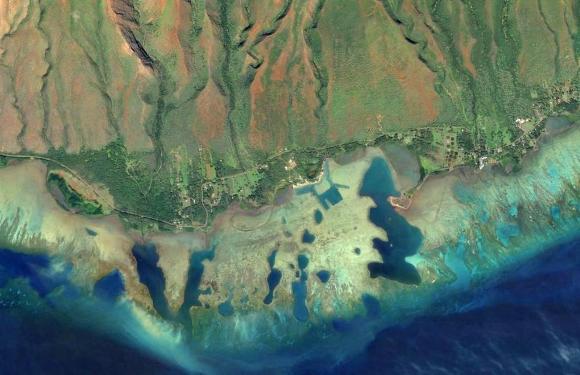Coral response to land-to-ocean freshwater flux: a ridge-to-reef perspective
Assessments that incorporate areas from land-to-ocean, or “ridge-to-reef”, are critical to examine how land-use practices are altering stream discharge and nearshore marine health and productivity. Stream systems in both Alaska and Hawaiʻi are expected to experience changes in water quality associated with changing environmental conditions and increased human-use. Watershed systems throughout the Hawaiian Islands are currently experiencing impacts from climate change that affect groundwater recharge and surface runoff, erosion, and total streamflow, and cause degradation of nearshore marine habitats. This study can provide useful insight for both Alaska and Hawaiʻi by providing resources on how patterns in stream flow alter land-to-ocean materials movement and productivity in associated marine habitats.

This project will develop innovative methods for layering water quality data onto 3D habitat maps to identify spatial associations between river discharge and marine habitat characteristics. The workflow will be developed in a Hawaiian system in collaboration with both the Pacific Islands and Alaska CASCs. Scientists will collaborate closely to ensure the approach can be applied to multiple sites throughout both regions to better understand ridge-to-reef and icefield-to-ocean systems.
This project will utilize cutting edge 3D mapping technologies to visualize and analyze how river discharge impacts marine habitats. The resulting high-resolution 3D models will be shared on web-based platforms to help inform resource managers and the public about how climate change is impacting important watershed environments. The results will also help managers identify specific parameters in these systems that are impacted by climate change and develop strategies to mitigate harmful impacts to marine habitats. The outcome of developing these tools will be to promote conservation action to sustain the social and economic benefits in both the Pacific and Alaska CASC regions.
PROJECT DETAILS
FUNDED:
FY2021
PI:
John Burns
Assistant Professor of Marine Science, UH Hilo

